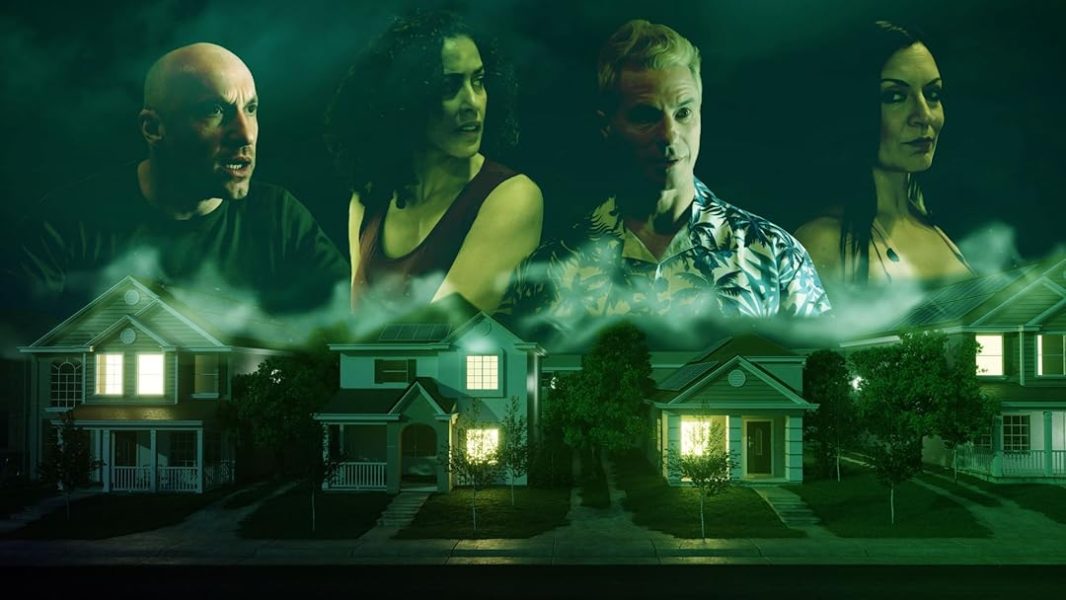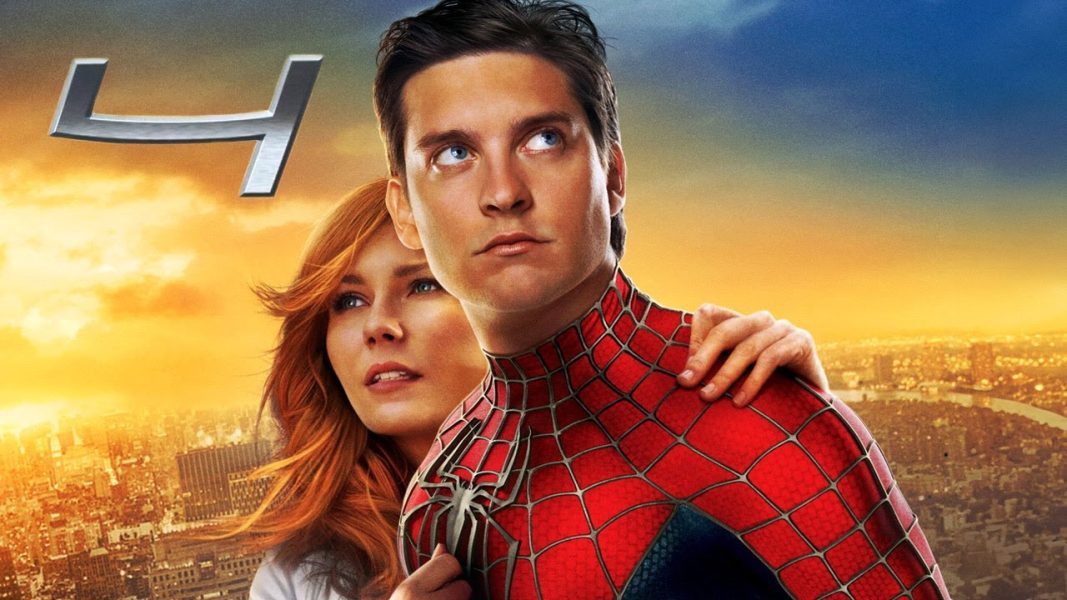Don’t Worry Darling (2022): Not as Bad as You Might Expect

After the success of 2019’s Booksmart, the next Olivia Wilde directed project became one of the more sought after projects in the industry. New Line Cinema won the bidding war and secured the rights for Don’t Worry Darling. With casting announcements such as Florence Pugh, Harry Styles, and Chris Pine later in 2020, it became one of the most anticipated movies of 2022. However, behind the scenes drama began to leak to the tabloids and social media leading up to Don’t Worry Darling’s premiere at the Venice Film Festival; soon after, reviews began to pour in slandering the film, which now sits at a 39% on rotten tomatoes (at the time of publishing). But is it as bad as critics say?
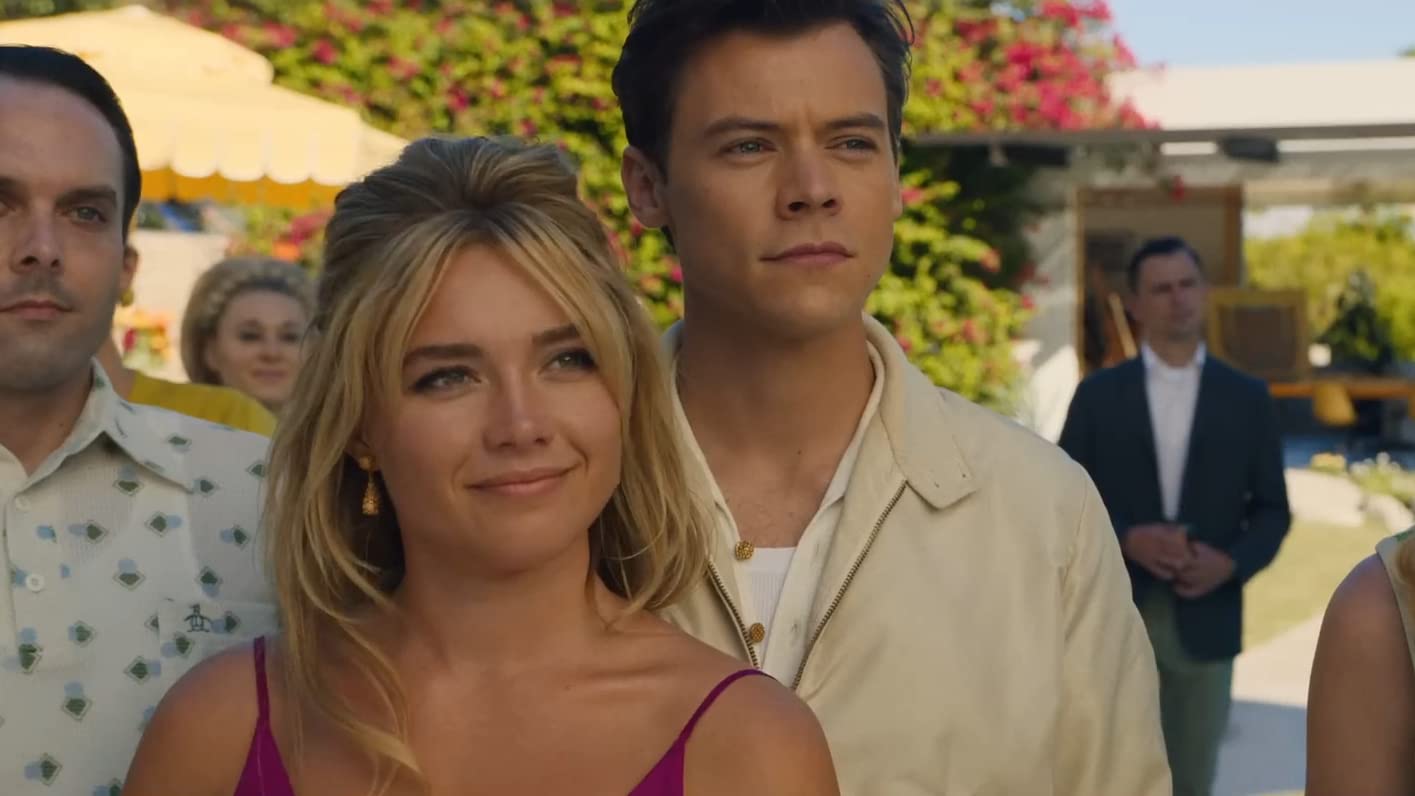
In 1950s suburbia, married couple Alice (played by Florence Pugh) and Jack (played by Harry Styles) live an idyllic life in a perfect utopia called, The Victory Project, run by the enigmatic Frank (played by Chris Pine). As Jack runs off to work at a government plant nearby with the rest of the husbands, cracks begin to form in Alice’s paradise. She begins to ask more questions regarding Jack’s work and The Victory Project, as her psychological state increasingly waivers. This leads her to question her role in Victory and what might lurk beneath the surface.
Why don’t we start with addressing the behind the scenes drama that unfortunately became more interesting than the film itself. Back in 2020, Shia LaBeouf was set to play Jack in Don’t Worry Darling. He was later fired in 2021 by Wilde due to him constantly clashing with the cast and crew. However, in 2022, LaBeouf countered the claims he was fired by saying he quit. This would’ve been taken with a grain of salt if he didn’t bring text messages to back up his claims, forcing Wilde to double down on firing LaBeouf. It was also rumored for a while that Wilde and Pugh were having a feud during filming as it was released that both women got into a screaming match on set, forcing a Warner Brothers executive to negotiate a compromise on film promotion after filming wrapped.
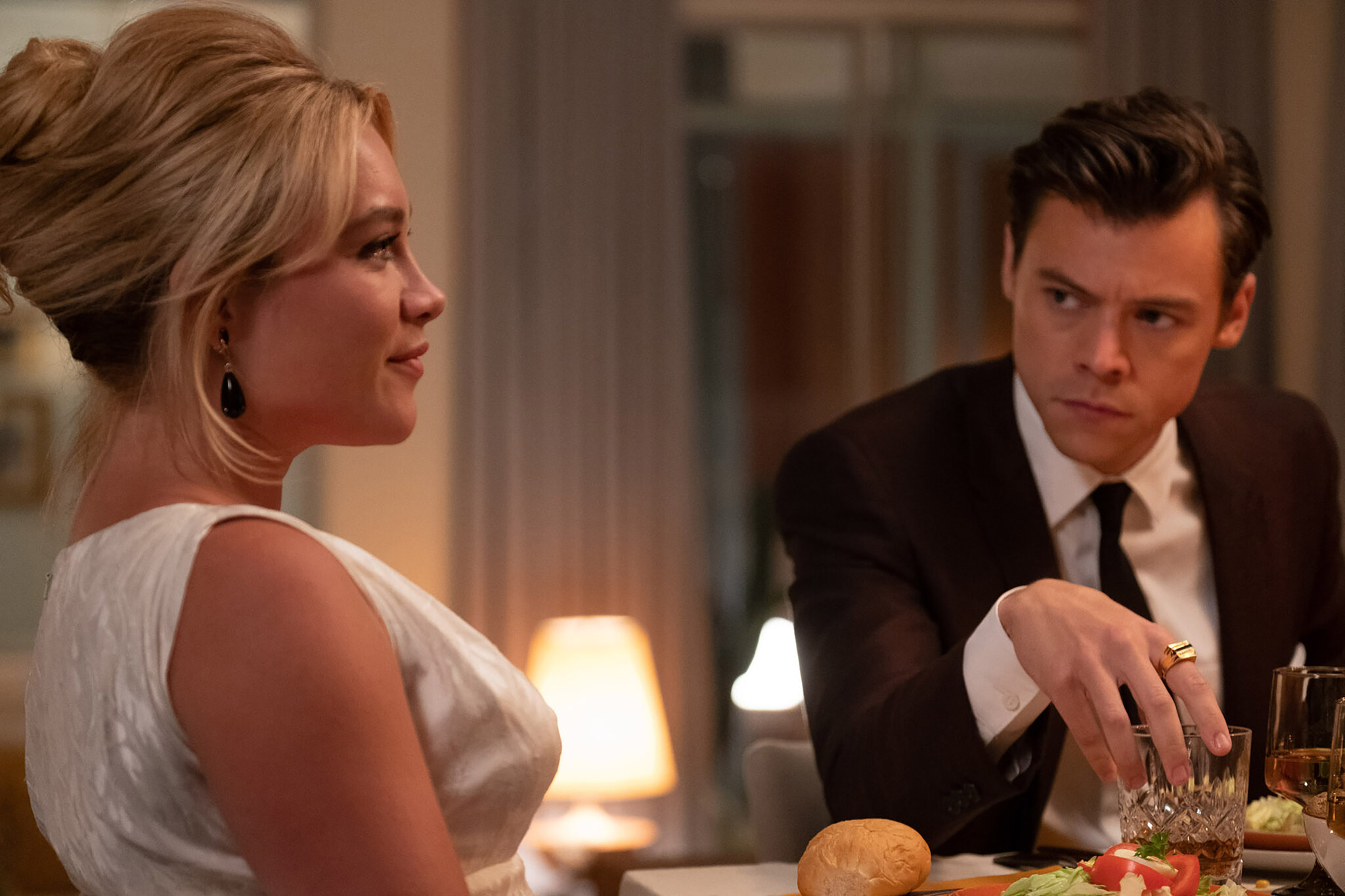
The tea may have been spilled about what happened behind the scenes, but it should not be overstated how well acted this film is. Many have criticized the film already, but all are in agreement, myself included, that Florence Pugh is a tour de force in Don’t Worry Darling. She dominates the screen in every scene she’s in and truly sells the confusion and panic she feels as her world comes crumbling down. Harry Styles does well with the material he is given and has good chemistry with Pugh, but he happened to show more chemistry with co-star Nick Kroll in less time. Chris Pine also has to be commended, as he gives off creepy overlord vibes all while having a magnetic personality. In one scene, he felt like an evil puppet master as Jack danced the night away, smiling devilishly and maintaining his distressing demeanor.
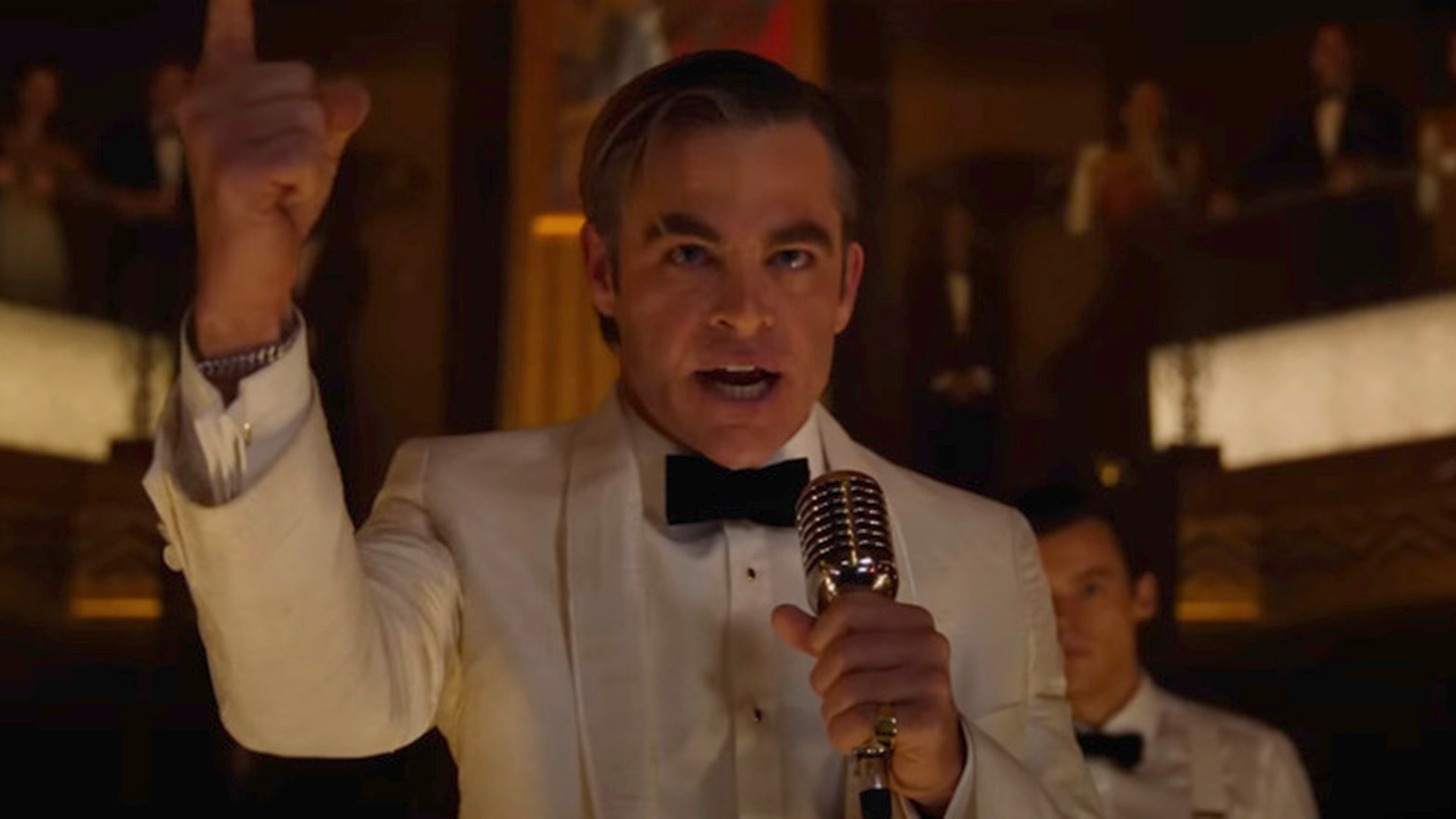
The performances may be phenomenal for Don’t Worry Darling, but its biggest issue was its pacing. It became inconsistent quite frequently, changing between break neck speed and a snail’s pace, leaning more towards a snail’s pace most of the time. Even though slow-burns can work for psychological thrillers, it still needed to show a sense of urgency. However, the film never felt like time was of the essence; at least until the 3rd act. The 3rd act more than put many of my worries to bed as the story was turned on its head with a good twist and extremely unpredictable nature. Add this unpredictability with the combo of Pugh’s performance, it truly makes for a climax you cannot take your eyes away from.
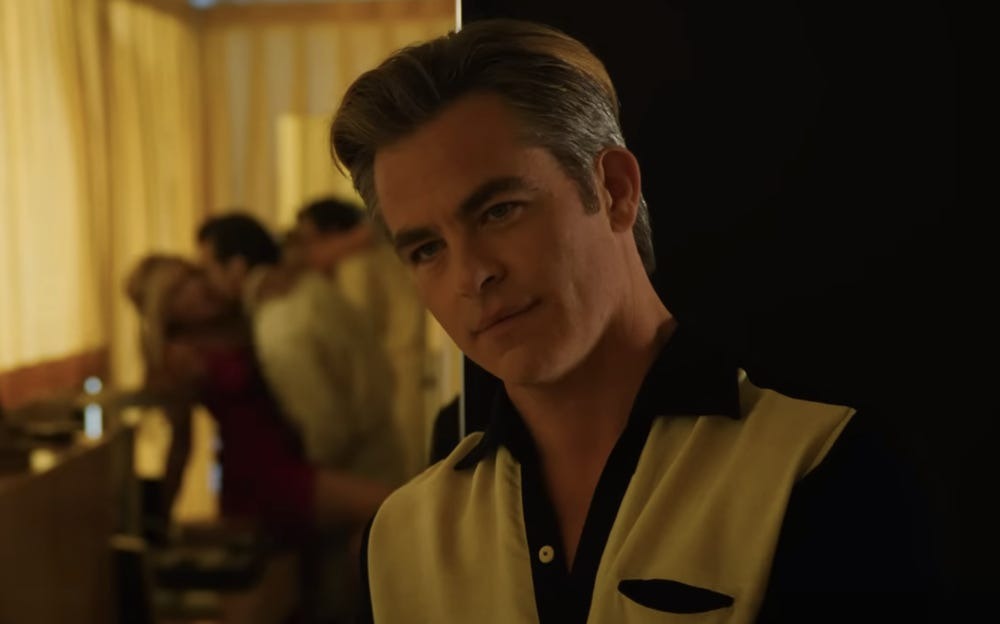
I nearly forgot about the immaculate production design and adrenaline rush of a score. The production truly felt like a nostalgic trip back in time to a different era down to the last minute detail, whether its the pattern of the bed sheets or the casing of a vinyl record player. But what really spoke to me was the score. The particular score I am referring to revolves around the sound of women hyperventilating slowly accelerating, it was anxiety-inducing and really helped keep the uneasy tone of the film. Other musical pieces help with the nostalgic and grandeur of Don’t Worry Darling, and also sell the energy the party life expected of the 1950s.
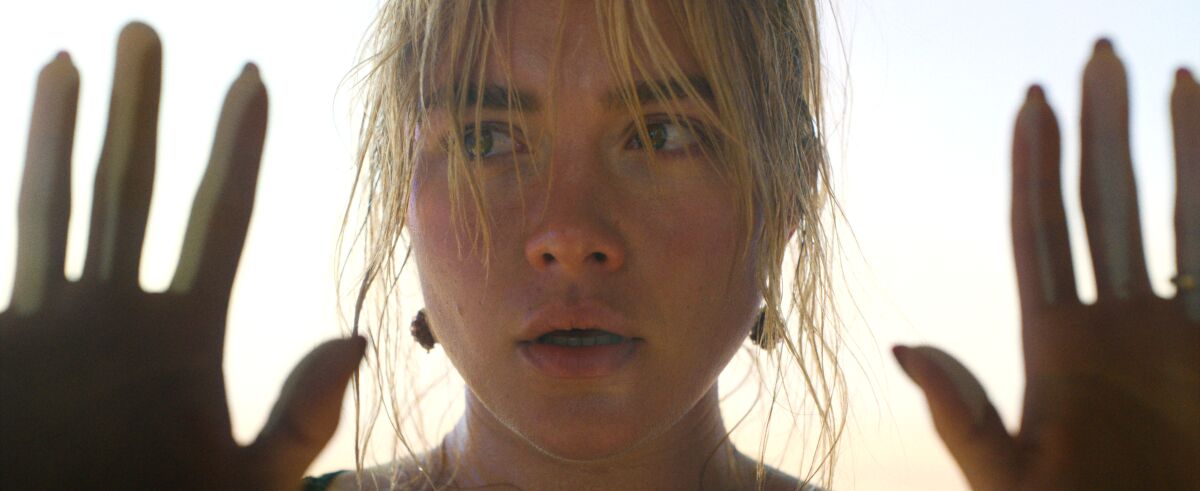
The drama behind Don’t Worry Darling turned out to be more compelling than the film itself, which is slightly depressing considering how fascinating the actual film experience is. Despite having an inconsistent and slow-moving pace, the excellent 3rd act, along with Pugh’s commanding performance, and a magnetically-eerie Chris Pine more than make up for the film’s shortcomings. Along with an upsettingly commanding musical score and exquisite production design, it makes for a film that isn’t terrible but doesn’t live up to the hype it created.

